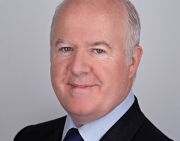

There was an interesting, but mostly unreported, development this week on the regulatory front which may have significant repercussions for regulated firms.
Of course, they have always co-operated on the more serious cases of financial crime, and this is an update of an older agreement, but the deal means the two will now routinely swap relevant information more frequently.
In future we may see far more joint FCA-SFO operations to investigate regulated firms or parallel investigations running at the same time as the UK tries to deal with an unprecedented wave of fraud and financial crime.
So should we be concerned that all this may be a prelude to some kind of super regulator, combining all the forces fighting financial crime under one umbrella with a huge array of Draconian powers?
Possibly, but let’s come back to that.
Certainly the FCA has shown a greater appetite to work with other authorities in recent times including The Pensions Regulator and particularly the courts. This co-operation is seen as vital if cases are not to “fall between the cracks” – the grey areas between regulatory bodies often exploited by ruthless criminals.
{loadposition hidden2}
Many will agree we need it. The UK is now one of the most scammed nations on earth and anything that could reduce this is to be welcomed.
The crooks who set out to cheat and con the weakest in our society deserve no quarter. If greater co-operation between the FCA, the SFO, and other bodies, achieves better results then we’ll all be better off for it and a bit safer.
One issue the UK faces is that tackling fraud is immensely complicated, time consuming and relatively poorly resourced. The number of police officers assigned to fraud is woefully low and far too many fraudsters get away with their crimes, increasingly perpetrated from overseas. Banking and online fraud in particular are out of control.
I doubt there are many readers of this column who have not been victims or do not know of a victim.
I suspect the agreement between the SFO and FCA is borne at least in part of a frustration that fraud and financial crime is growing exponentially but the resources to deal with them have not. This deal may help.
The agreement is not yet the formation of a super financial regulator but it is a small step in that direction. With this extra ‘power’, of course, comes the risk of using that power excessively or unwisely. Care must be taken not to squeeze the life out of the regulated sector. Over-regulation is almost as bad as too little. It will simply stifle new developments and entrepreneurship.
However, good, well run, professional firms have nothing to fear from this new approach. Fraudsters may want to take note.
• If you are not already registered for Financial Planning Today please sign up now to view more stories for free. Just click on a couple of stories to see the pop-up registration box.
> Top Tip: Follow Financial Planning Today on Twitter @_FPToday for breaking news and key updates
Kevin O’Donnell is editor of Financial Planning Today and has worked as a journalist and editor for over three decades.
{loadmoduleid 444}
Leave a Reply